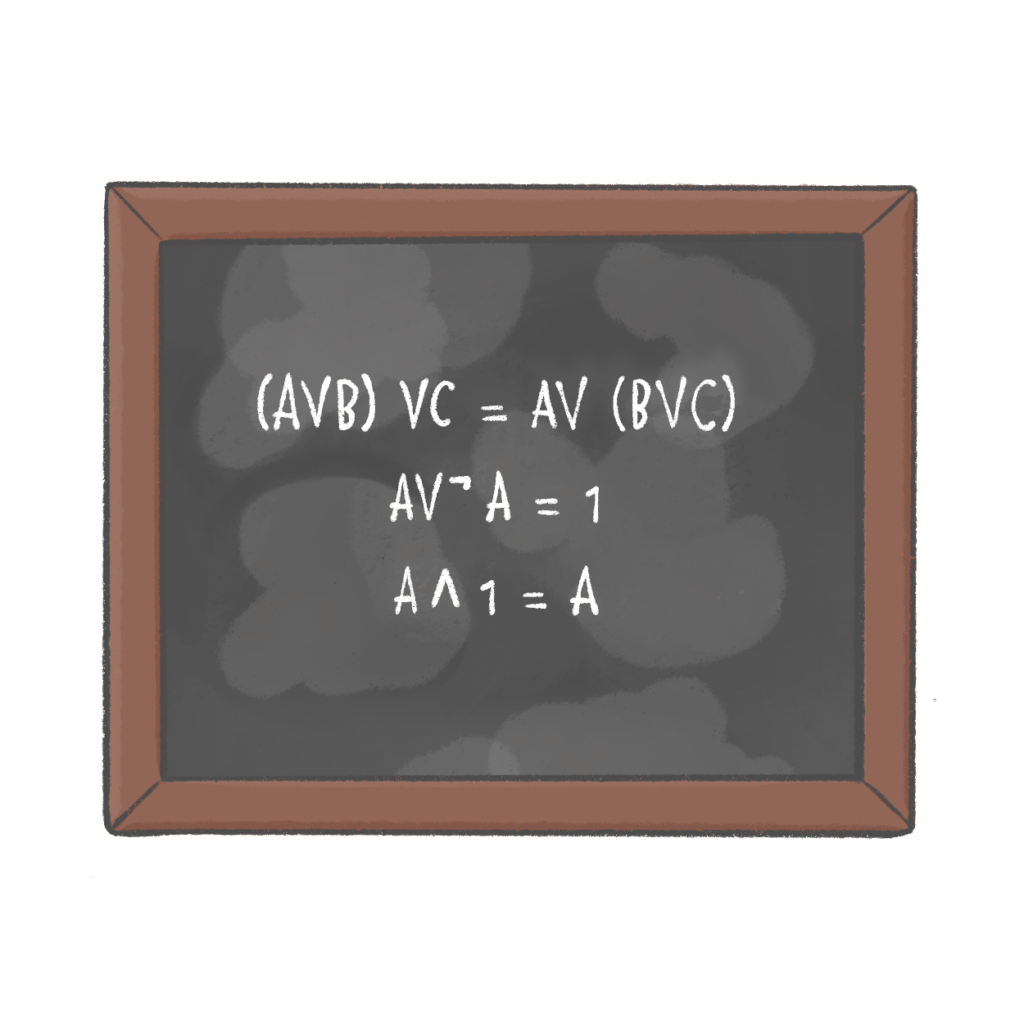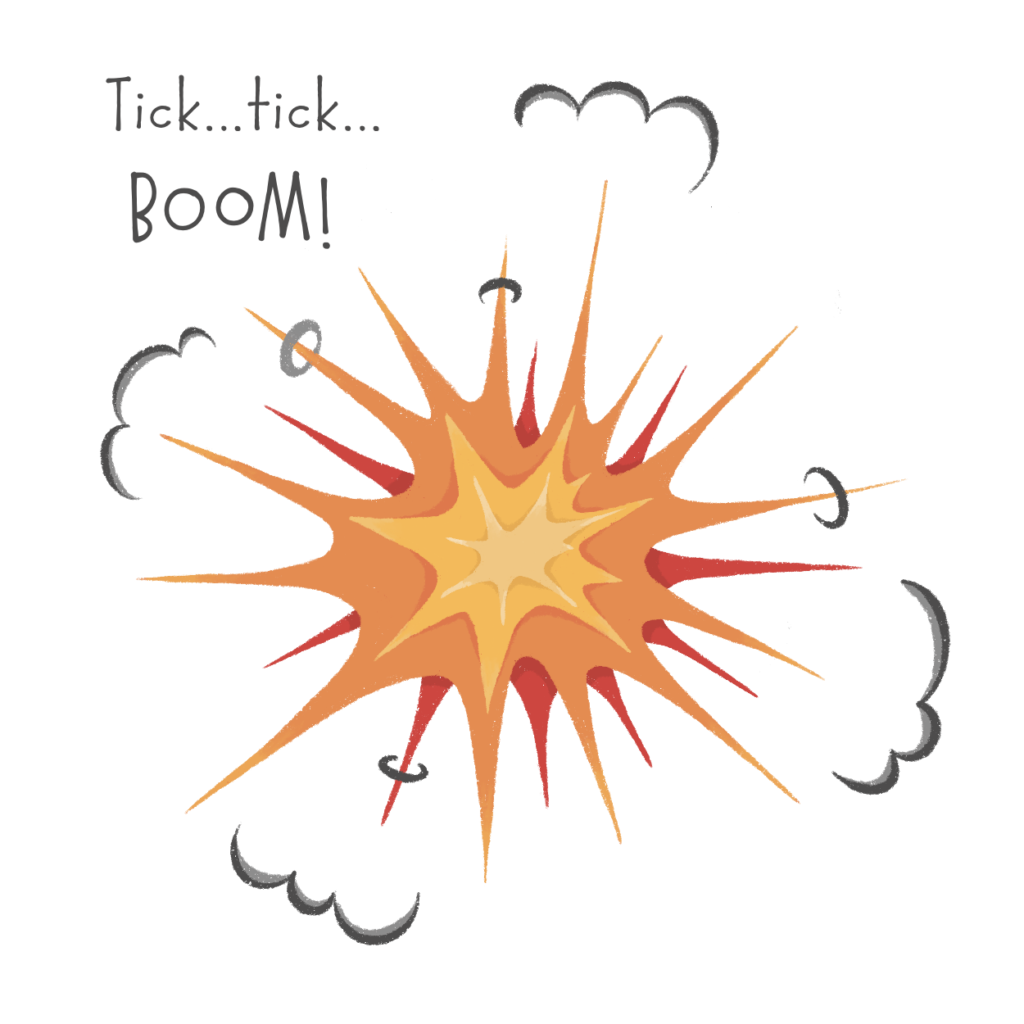5 Ways for Writers to Organize Ideas

How can you organize ideas in a way that will make everything clear and more fun?
I know I spend a lot of time harping on you guys to organize your ideas and plan your writing. Now, we’re talking about revising and I’m saying you have to re-organize your writing after the fact, if it feels wonky…
I know. I’m sorry. It’s like I’m telling you to re-invent the wheel just for the sake of checking off the “Revising” box on your list of writing to-dos. I’m not.
I don’t want you to change anything if it’s great already, but you should make sure that your ideas are organized in a way that will help your readers really get your point – the way you imagine it: perfect and brilliant and full of special wisdom.
Here are five ways you can organize ideas in your writing and be certain that your readers will get it:

1. Chronological Order
- What it is: This is a very common way to organize ideas as a writer or storyteller that basically involves dishing out ideas or details in order of time, first to last.
- When to use it: It is often used in expository writing (narrative that informs or explains) – particularly when describing an event or series of events.
- Example: Think about when you were a kid and trying to explain to the principal why you shouldn’t be left in detention until the end of time. Yup! You described the events carefully and in order, because that’s how you make sure your listener/reader understands the context and details of a narrative.
- Transition words and Phrases are important with every framework you use, to help your readers navigate the process smoothly. In the chronological framework, some commonly used transitional word and phrases are: first, then, next, last, finally, etc.

2. Logical Order
- What it is: exactly what it sounds like. This framework is used to avoid confusion in the reader.
- When to use it: You should organize ideas in this framework if your reader needs to understand one point before being capable of understanding the next.
- Example: Before talking to my students about Robert Frost’s famous poem about decisions – The Road Not Taken – I told them a story about the biggest decision I had made thus far in my life. They were able to take the logical leap to understanding the true nature of the poem after hearing about my process of decision making.
- Transition words and phrases: first you should understand, keep that in mind while I explain, remember when I said.
3. Climactic Order
 What it is: In this framework, you generally keep the most important or exciting point until the last of the piece.
What it is: In this framework, you generally keep the most important or exciting point until the last of the piece.- When to use it: Use this framework when you want to build excitement in a piece or really emphasize one point as the pinnacle of the piece. It is often used in persuasive essays (argument-winners, as my high school students would have said), rankings or lists of things or illustration of a major problem or usable solution.
- Example: When you are proving that your landlords need to fix the plumbing in the bathroom, you may start with the incessant dripping tap, to the waste of hot water in the leaking shower, and then landing on the punchline of the toilet being blocked up (because we all know that is the WORST). Leaving that final – and awful – point to resonate with your reader or listener will add more weight to the other points, and keep the most important one at the forefront of their mind.
- Transition Words: first of all, more importantly, just as importantly, finally.

4. Random Order
- What it is: Just as it seems, this un-framework allows you to order your ideas based on whim and whimsy more than any specific or logical progression.
- When to use it: Organize ideas in this way when your points all have equal value or importance and can sit independently of one another in understanding.
- Example: This one doesn’t happen often, but I’m using it today. All of these ways to organize ideas have the same value and need no chronological or logical order to make them clear, so TA DA! Random!
- Transition Words: Use association of ideas between points to transition from one to the next, rather than stock transition terms.
5. Spatial Order
 What it is: Describing a scene as things are arranged in a physical space – either by moving from one detail to the next, or as viewed from one stationary vantage point.
What it is: Describing a scene as things are arranged in a physical space – either by moving from one detail to the next, or as viewed from one stationary vantage point.- When to use it: This one is so cool! You can use it whenever you want your readers to visualize a space, or if you want to evoke a scene using the senses.
- Example: Use this arrangement to organize ideas when you are describing your workspace, a product use or place description. It’s also a great way to slow down a story when it’s getting extremely intense and you want to add a little pacing for suspense: take a page to do a point-of-view description of the setting in the moment.
- Transition words: just to the left/right, behind, between, across from, rising out of, to the North/South etc., a little further, a few cm/inches/metres/feet (basically all prepositions).
Which framework did you use in your last piece?
Chances are that you did use one, even if you didn’t mean to. You could likely tighten it up and use it more effectively, if you do it on purpose. Comment below and share which of these tips to organize ideas in your writing you plan on using – or which one you use a lot already.

5 Ways for Writers to Organize Ideas
How can you organize ideas in a way that will make everything clear and more fun? I know I spend a lot of time harping on you guys to organize your ideas and plan your writing. Now, we’re talking about revising and I’m saying you have to re-organize your writing after the fact, if it…
The Shocking Truth about Writers’ Block is Simple.
It’s that horrible feeling when you sit down to write… But instead of finding that creative flow pouring out, you sit paralyzed – staring at your computer screen and seething at the impossible task of…words. Everybody who’s tried communicating with words has felt it: a paralyzing barrier between the idea you want to share & the ability to…
- « Previous
- 1
- 2

 What it is: In this framework, you generally keep the most important or exciting point until the last of the piece.
What it is: In this framework, you generally keep the most important or exciting point until the last of the piece. What it is: Describing a scene as things are arranged in a physical space – either by moving from one detail to the next, or as viewed from one stationary vantage point.
What it is: Describing a scene as things are arranged in a physical space – either by moving from one detail to the next, or as viewed from one stationary vantage point.
